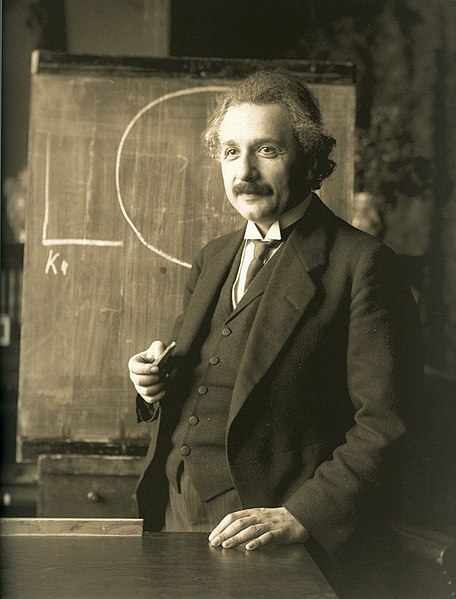 |
| Albert Einstein. [A] |
Better known for his theoretical work in physics and as a teacher, Einstein also was -- although this tends to be forgotten -- a public intellectual who used his prominence to promote ideas he considered worthy: pacifism, a Jewish homeland in Palestine where Jews, Muslims and Christians would co-exist peacefully with equal rights, and socialism.
But Einstein wasn't simply a socialist, without any other adjectives. In my reading, he was a Marxist.
The first issue of the Monthly Review magazine, published in May 1949, included Einstein's "Why Socialism?" essay.
Written in a precise and direct language, without losing the warmth and intellectual honesty usually associated to Einstein's name, the piece has the feeling of an introductory lecture on Marxism and I highly recommend it to both, those who are already somewhat familiar with Marxism and those who are not.
The fragment below closes the essay and was extracted from "Why Socialism?", generously made publicly available by Monthly Review:
"Why Socialism", by A. Einstein.
"This crippling [of social consciousness] of individuals I consider the worst evil of capitalism. Our whole educational system suffers from this evil. An exaggerated competitive attitude is inculcated into the student, who is trained to worship acquisitive success as a preparation for his future career.
"I am convinced there is only one way to eliminate these grave evils, namely through the establishment of a socialist economy, accompanied by an educational system which would be oriented toward social goals. (...)
"Nevertheless, it is necessary to remember that a planned economy is not yet socialism. A planned economy as such may be accompanied by the complete enslavement of the individual. The achievement of socialism requires the solution of some extremely difficult socio-political problems: how is it possible, in view of the far-reaching centralization of political and economic power, to prevent bureaucracy from becoming all-powerful and overweening? How can the rights of the individual be protected and therewith a democratic counterweight to the power of bureaucracy be assured?
"Clarity about the aims and problems of socialism is of greatest significance in our age of transition. Since, under present circumstances, free and unhindered discussion of these problems has come under a powerful taboo, I consider the foundation of this magazine to be an important public service."
Photo Credit:
[A] Albert Einstein during a lecture in Vienna in 1921, photographed by Ferdinand Schmutzer. Wikipedia.
No comments:
Post a Comment